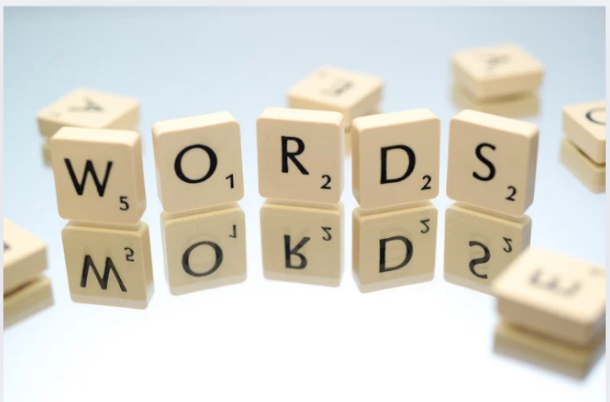Drudgery 7 Little Words: Unlocking Mystery puzzle 2024
Introduction
If you’ve ever played the word puzzle game Drudgery 7 Little Words, you’re familiar with the challenge of deciphering clues to uncover hidden words. One such word that often pops up is “drudgery,” which may seem like a simple word at first glance, but it can be tricky to nail down in the context of the game. In this article, we’ll dive into the meaning of “drudgery,” explore how it fits into 7 Little Words, and discuss why this word is such a fitting choice for a puzzle. Let’s get started!
What is Drudgery?
Before we get into how drudgery 7 Little Words, let’s first understand what the word means. At its core, drudgery refers to tedious, monotonous, and often exhausting work that lacks excitement or fulfillment. It’s the kind of work that feels more like a chore than a rewarding task. But why is this word so commonly associated with mundane tasks?
The Meaning of Drudgery 7 Little Words
Drudgery 7 Little Words is a term that describes repetitive and sometimes mind numbing work. Whether it’s a dull office job, cleaning, or doing endless paperwork, drudgery feels like something you’re forced to do rather than something you want to do. It’s the opposite of enjoyable, fulfilling work. But why does this word carry such a heavy connotation?
Why Do We Associate Drudgery with Routine?
The connection between drudgery and routine is simple: routine work often becomes predictable, and the lack of variety makes it feel less exciting. When tasks become repetitive, they start to feel like drudgery. The mental and physical exhaustion from performing the same tasks day in and day out is what makes them feel like drudgery.
The Popularity of Word Puzzles
Now, let’s shift gears and talk about Drudgery 7 Little Words. This popular word puzzle game has captured the attention of puzzle lovers everywhere. It challenges players to think creatively and use their vocabulary to solve clues. The game is simple: each puzzle provides a set of clues, and your job is to figure out the correct words by matching them to the given definitions.
What is Drudgery 7 Little Words?
Drudgery 7 Little Words is a word puzzle game that gives players seven clues, and each clue leads to a specific word. The trick is that each word is broken down into a series of letter groups, and players must figure out how to assemble the words correctly. The game has gained popularity because it strikes a balance between being challenging and fun, keeping players engaged without overwhelming them.
How Drudgery 7 Little Words Works
In Drudgery 7 Little Words, you’re given a set of letter groups that you need to combine to form a word that matches the clue. For example, if the clue is “tedious work,” the answer could be “drudgery.” The game is easy to pick up but can be tricky to master, especially when dealing with words like “drudgery” that don’t immediately come to mind.
Exploring the Puzzle: Drudgery in 7 Little Words
Now, let’s focus on how the word “drudgery” appears in 7 Little Words. As we mentioned earlier, the word refers to tedious and repetitive work, which makes it a perfect fit for a puzzle game that often features challenging and obscure words.
Understanding the Clue
When you encounter the clue for drudgery 7 Little Words, it might be something like “tedious work” or “boring task.” These types of clues are designed to get you thinking about words that fit the description but might not be the first ones that come to mind. The goal is to challenge your brain and expand your vocabulary, which is part of the fun of playing word puzzles.
Solving the Puzzle with the Word “Drudgery”
To solve the puzzle, you’ll need to use the letter groups provided and combine them to form the word “drudgery.” It’s not always an easy task, but once you get the hang of it, you’ll start recognizing patterns in the clues and the letter groups. Solving the puzzle feels like a mini victory, especially when you uncover a tricky word like “drudgery.”
Why Drudgery is a Challenging Puzzle Word
So, why is “drudgery” such a tough word to solve in 7 Little Words? The answer lies in its complexity and its association with negative emotions. It’s not a word you encounter in everyday conversation, and its meaning isn’t always clear at first. That’s what makes it an interesting choice for a puzzle.
The Puzzle’s Use of Synonyms
One of the reasons “drudgery” can be a challenge is because it has several synonyms that could fit the clue. Words like “labor,” “toil,” and “chore” all describe similar concepts, but “drudgery” has a unique nuance that sets it apart. The puzzle forces players to think beyond the obvious answers and consider less common synonyms.
How Drudgery Fits into Wordplay
In the context of 7 Little Words, “drudgery” is a great example of how wordplay works. The game often includes words that have multiple meanings or words that aren’t used often in casual conversation. “Drudgery” fits into this category perfectly, making it a word that challenges players to think more deeply.
The Role of Drudgery in Our Daily Lives
While “drudgery” may be an abstract concept in the puzzle, it’s something that many of us experience in our daily lives. Whether it’s the grind of work or the endless cycle of household chores, we all have our own versions of drudgery.
How Drudgery Affects Our Work and Motivation
Drudgery can have a significant impact on our motivation. When we’re stuck in a cycle of repetitive, tedious tasks, it’s easy to feel unmotivated or burnt out. This is why finding ways to break the monotony is so important for maintaining productivity and mental well-being.
Overcoming Drudgery in Everyday Tasks
One way to combat drudgery 7 little words is by finding ways to make routine tasks more enjoyable. Whether it’s listening to music while cleaning or setting small goals for work tasks, making the experience more engaging can help reduce the feeling of drudgery.
The Reward of Solving a Tough Puzzle
There’s something incredibly satisfying about solving a difficult puzzle, especially when the word is something like drudgery 7 little words. It’s a reminder that even the most tedious tasks can have a sense of accomplishment at the end.
Drudgery in Puzzles and in Life
Ultimately, the word “drudgery” serves as a metaphor for life’s repetitive challenges. But just like in 7 Little Words, overcoming drudgery—whether in puzzles or in life—can lead to moments of triumph and satisfaction.
Conclusion
drudgery is more than just a tough word to solve in 7 Little Words it’s a concept that resonates with many of us in our everyday lives. The game’s clever use of challenging words like “drudgery” helps expand our vocabulary while also reminding us of the monotony that can come with daily tasks. Solving a tough puzzle like this is rewarding, and it gives us a sense of accomplishment that contrasts with the drudgery of everyday life.
FAQs
What is the best way to approach 7 Little Words?
The best approach is to start with the clues you know and work from there. Don’t be afraid to try different combinations of letters and think outside the box.
Can Drudgery 7 little words be a Positive Word?
While drudgery 7 little words usually has a negative connotation, it can be seen as a necessary part of life. Sometimes, tedious tasks lead to greater rewards.
Why are word puzzles so addictive?
Word puzzles engage your brain and provide a sense of accomplishment when solved, which makes them rewarding and hard to put down.
How can I improve my puzzle-solving skills?
Practice is key! The more you play, the better you’ll get at recognizing patterns and solving clues.
How does solving puzzles like “7 Little Words” help your brain?
Solving puzzles sharpens your mind, improves memory, and boosts problem-solving skills, making them great for cognitive health.







